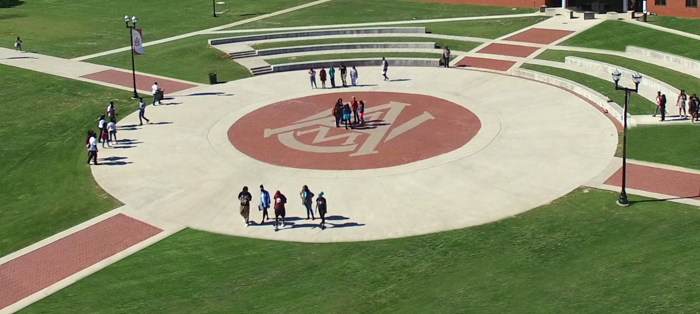Electrical Engineering and Computer Science
The Department of Electrical Engineering and Computer Science (EECS) offers programs of study at both undergraduate and graduate levels.
For undergraduate students, programs are offered leading to the degrees of Bachelor of Science in Electrical Engineering (BSEE), or Bachelor of Science in Computer Science (BSCOMPUTER SCIENCE).
The BS degree in Computer Science program is accredited by the Computing Accreditation Commission of ABET, and the BS degree in Electrical Engineering program is accredited by the Engineering Accreditation Commission of ABET.
The department also offers graduate instruction and research leading to Master of Eng. in Materiel Engineering (EE emphasis), MS in Electrical Engineering, and MS in Computer Science.
Students in the EECS Department have access to the most modern instructional and laboratory infrastructure. Among EECS faculty are internationally recognized authorities in their respective fields of expertise. Electrical engineering and computer science are extremely versatile technical fields with the most promising career prospects.
The undergraduate degree program in Electrical Engineering (BSEE) curriculum is offered in four concentrations, General EE Concentration, Computer Engineering Concentration, Nuclear Power Concentration, and Microelectronics (VLSI) Concentration. Graduates of the BSEE program are well prepared to pursue careers in research and development, design, manufacturing and management in a diverse array of industries including power engineering and energy systems, electronics, computer and information, communication, aerospace, automotive, robotics, etc. They are also well prepared to pursue graduate and professional degrees.
The undergraduate degree program in Computer Science provides a course of study designed to give students a through grounding in both theoretical and practical areas of computer science. Computer Science continues to be a rapidly growing and changing field with a wide variety of occupational opportunities. Virtually every Computer Science course requires some practice in programming skills, so that students will, upon graduation, be prepared for either graduate school or entry into the computer applications job market.
Resources
- Meet our Faculty & Staff
- Electrical Engineering Career Network
- Apple New Silicon Initiative at Alabama A&M University
- Cadence University Program Member
- Summer Internship - NSF REU
Research Experience for Undergraduates - Alumni Survey Form
Alumni, please fill out this form to provide feedback to the EECS department on your experiences as an undergraduate - Employer Survey Form
Employers, please fill out this form to provide feedback to the EECS department on your AAMU alumni employees. - Internship oportunities
- CS Program Educational Objectives and Student Outcomes
Contact Us

 Skip to content
Skip to content